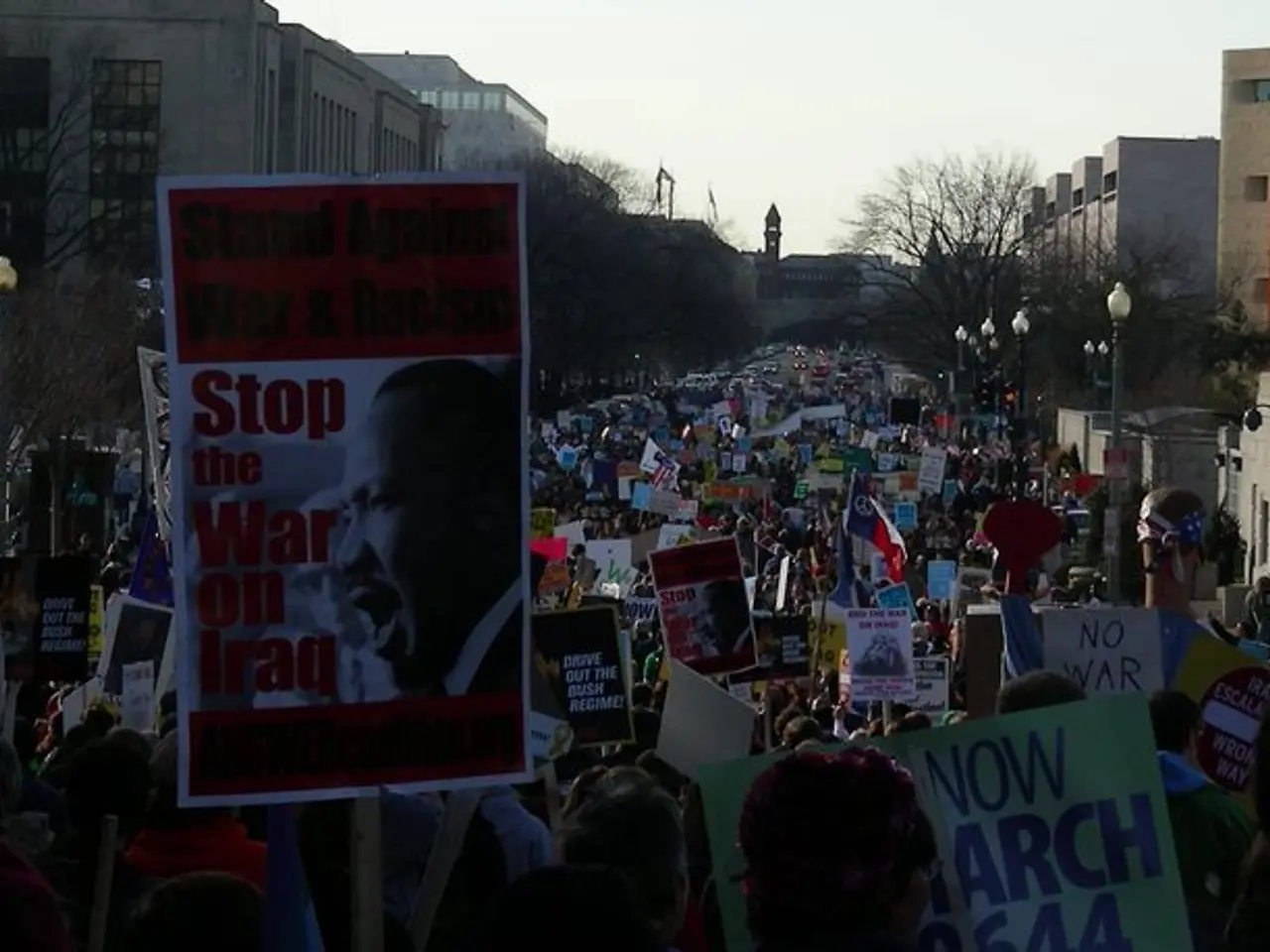Protests Against Gentrification in Mexico City: A Call for Change
International outcry over anti-gentrification demonstrations sweeping through Mexico City's streets
In the heart of Mexico City, protests against gentrification have been making headlines, sparking debates about urban policy, economic inequality, and cultural identity. Activists, led by Sergio Juariqua of the 06600 organization, are calling for structural reforms to address rising rents, displacement, and the influx of foreign residents, particularly from the United States.
Causes of the Unrest
The roots of the protests can be traced back to the increasing gentrification of neighborhoods like Roma and Condesa. The influx of foreigners, notably remote workers and tourists, has led to a surge in property prices and rents, forcing many local residents out of their homes. This displacement is further exacerbated by the lack of affordable housing options, with prices per square meter reaching as high as €3,000[1][3].
The arrival of high-income individuals, such as digital nomads, has also led to increased consumer prices in local businesses, straining the financial situation of Mexican residents[5]. Adding to the mix is the cultural and national tension that arises from the perception that foreigners, particularly Americans, are driving these changes[1][2].
Global Reaction and Diplomatic Concerns
The protests have garnered international attention, highlighting the negative impacts of gentrification on local communities and the complexities of cultural integration[3][4]. The U.S. Embassy has issued security alerts for its personnel, reflecting concerns about the safety of American citizens in Mexico City due to the protests[2].
Urban Policy Implications
The protests serve as a call for regulatory measures to address the economic disparities caused by gentrification. Proposals include taxing tourists or implementing policies to keep prices stable in gentrifying areas[5]. The urgent need for affordable housing options necessitates urban policies that focus on increasing the supply of affordable housing and implementing rent controls to mitigate the displacement of local residents[3].
Encouraging dialogue between local residents and new arrivals might help reduce tensions and promote understanding. This could involve cultural exchange programs and community-led development initiatives[4].
A Milestone for Mexico
Amidst the turmoil, Mexico has made strides in other areas. Iván Espinosa has been named Global CEO and President of Nissan, marking a historic milestone for Mexico[6].
Looking Ahead
The protests against gentrification in Mexico City illustrate the challenges of balancing economic growth with social equity and cultural preservation. Addressing these issues will require comprehensive urban policies that prioritize affordable housing, community engagement, and economic fairness. The future of Mexico City lies in finding a balance that respects the rights of all its citizens while promoting economic growth and cultural exchange.
[1] https://www.bbc.com/news/world-latin-america-61598356 [2] https://www.reuters.com/world/us/us-embassy-issues-security-alert-mexico-city-protests-2021-07-02/ [3] https://www.theguardian.com/world/2021/jul/05/mexico-city-protests-gentrification-anti-american-sentiment [4] https://www.cnn.com/espanol/mundo/mexico-protestas-gentrificacion-condesa-roma-2021-07-03 [5] https://www.nytimes.com/2021/07/03/world/americas/mexico-city-protests-gentrification.html [6] https://www.bloomberg.com/news/articles/2021-07-02/nissan-names-ivan-espinosa-as-global-ceo-and-president-of-nissan
Read also:
- Southwest region's most popular posts, accompanied by an inquiry:
- Discussion between Putin and Trump in Alaska could potentially overshadow Ukraine's concerns
- Independence supporters in New Caledonia refuse agreement offering authority without a vote on sovereignty
- Proposed Standardization of Food Labeling Laws Among Member States by the Commission








